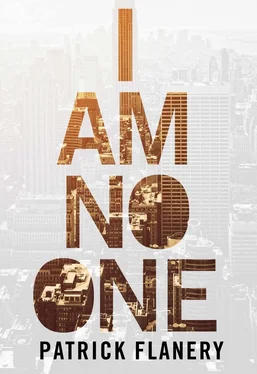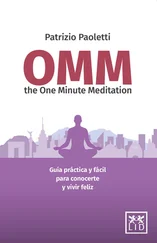I hugged her and whispered into her hair, ‘I promise I’m not crazy. I mean I’m all kinds of crazy in an ordinary way, but I am not crazy , or at least not any crazier than most people. Paranoid a little, yes, and perhaps I have a persecution complex, and sometimes I have difficulty with impulse control, but I’m not any crazier than most people who have spent the bulk of their lives in New York, or Oxford for that matter.’ As I said it, I thought of the many crazy people I had known in Oxford, and in particular about the one person who, the more my thoughts returned to him, seemed potentially to be the cause of this sudden strange turbulence in my life.
‘But you’ll talk to someone? I mean, it couldn’t hurt, could it?’
‘Yes, sweetheart, I’ll talk to someone, just to put our minds at ease.’
My mother and I refused Meredith and Peter’s offer to call a car service and took a taxi back down to the Village. During the ride my mother began to nod off, though it was only a little after seven in the evening, and she woke with a start when the cab stopped outside my building. The doorman on duty was not someone I recognized well enough to know his name. He was wearing no badge and seemed more interested in watching a video on his phone than on making sure we were supposed to be going upstairs unannounced. Since it was a holiday I decided not to make a fuss, although as we waited for the elevator I felt a rising urge to say something, which my mother said for me, speaking in a stage whisper the doorman could not help hearing, ‘If it was my building I’d want the doorman to check who was coming and going. In this day and age you can’t be too careful, but I guess he must be obsessed with football, or maybe he’s watching pornography , you know that’s what most of them do these days.’
The elevator doors opened and I stepped inside without looking back to see the face of the doorman, poor guy, poor chap I would have said only six months earlier, to have to be subjected to my mother’s hit-and-run commentary is never pleasant. I put her to bed early with a glass of whisky, which can be relied upon to make her sleep through the night, although I myself was feeling wide awake once more, and thinking back on the people I had known in Oxford, the man and woman on whom my mind was actively avoiding settling throughout that day and the previous few days, knowing nonetheless they were undoubtedly at the root of what was happening — what is now happening as I write this account.
That is to say, I had begun to suspect that Stephen, who I have been trying to forget, and Fadia, whose face hardly ever leaves my consciousness no matter how much a part of my mind wishes to place her beyond memory, were somehow the cause of the persecutions I was suddenly facing. These are the people you care about, I think, and for no greater reason than because I knew them, allowed myself to become involved with them, to entangle my life with theirs.
It was not until the start of my second year at Oxford that I met Stephen Jahn, his return to the College after a year’s sabbatical transforming my own slightly haphazard social life. Our first meeting was at a High Table dinner when we were seated across from each other, an unusual night when there were only six or so Fellows dining on the dais at the far end of the eighteenth-century hall with the students in their gowns seated on benches at the great long tables. They would sometimes clamber over these to reach the benches nearest the wall, it being impossible, given the length of the tables, to move them such that enough room could be made for someone to take a place further down an otherwise full bench, and for some reason there was a perverse habit of leaving blank spaces and of those who did so refusing to make room, or even to file out and file back in so that the space could be filled without putting filthy shoes on the tables where one was about to eat. But this was Oxford, which delights in the precarious balance of decorum and iconoclasm.
Stephen was a short man, not unlike Bethan’s father in that respect, and he was perhaps five years older than me, but totally bald, and I could see, despite his gray three-piece suit, carefully tailored or bespoke as the British say, that he was muscular to the point of looking almost like a bodybuilder but with none of the usual bulk. In other words, he was short and sinewy, so that, at the knocking of the grace, when he was standing up, he looked as slender as a sprinter. It was only seated, bringing his arms forward to eat, his spine always very erect, that I sensed how physically fit he was. He had a pug-like face, pugnacious, popping eyes, and wore narrow, Germanic-looking glasses that made him resemble a kapo or even a capo , a Neapolitan consigliere . At any rate, he had the face, body, and style of a fascist.
Our first meeting was one of those odd dances of half-deception and barely concealed interrogation. Initially I could tell nothing about his origins, although it began to be apparent that he was, like me, an American, but one whose displacement was longer standing than mine. His accent had drifted farther off course, or rather, like my own, it retained all the sounds of American speech but none of its rhythms and few of its idioms.
At first, I seemed to have been more opaque to him than he to me, although as time went on and we became friends after a fashion, I suspected that had only been a ruse, that in truth he knew a great deal about me before we had ever met.
‘Oh, are you also American?’ he purred, looking just to the side of me through his very thick lenses. This peculiar Oxford — or perhaps more generally British — affectation, to have a direct conversation with someone while refusing almost all eye contact, never failed to unnerve me. ‘I thought for certain you must be German, although of course the kind of German who has spent most of his adult life in England.’
‘But I don’t have a German name.’
‘Oh? I didn’t catch your name.’ We had all been introduced in the Senior Common Room before processing into the hall, gathering and robing ourselves in preparation for that parade past students who must, I always thought, have looked upon us with a sense of resentment, or a few perhaps with some desire to join us, to be one of those graduate students who occasionally earns the privilege of dining at High Table, the Junior Dean and such, who are often more interesting and stimulating company than the aging Senior Fellows.
I reminded Stephen of my name and told him my field and area of expertise, what I was working on at the time, my interest in film as well as in history. As I spoke he ate his fish, using his fork and knife in the European way: fork in the left hand, tines pointed down to spear the food, knife in the right to cut and trowel a mouthful’s worth onto the back of the fork. When I had finished talking about my work, he put his utensils down on the plate, and before he had stopped chewing dabbed at the corners of his mouth with the large white napkin drawn from his lap.
‘Jeremy O’Keefe. O’Keefe. No, no, no,’ he shook his head. ‘That doesn’t fit, not really, you’re not a Jeremy, or perhaps you are, though you seem more a Jeremiah to me, you have an Old Testament voice and look like the kind of man the Tetragrammaton might raise, but O’Keefe is completely, but so completely wrong ,’ and here he glared at me, made brief eye contact, studying my face so closely that his gaze registered almost as a tangible weight on my skin. ‘There’s nothing Irish about you, Dr. O’Keefe. Not even anything very Celtic . No, you have a quite Teutonic face and a number of New Canaan ancestors. That is my guess. Am I right? Have you done one of those DNA tests? Finding your roots? Who do you think you are? Are you half Berber?’
Читать дальше












